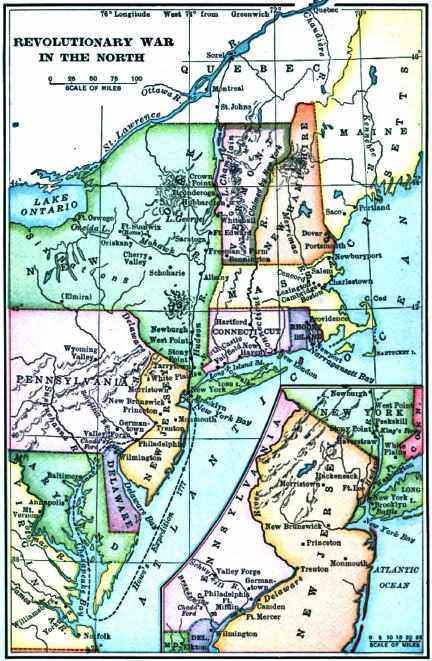Resource Center OLLibrary
|
140 |
|
[1766-1767 |
|
160. Parliament closes the Port
of Boston and places a Military Governor over the
|

NEGenWeb Project
Resource Center OLLibrary
140
LEADING FACTS OF AMERICAN HISTORY [1766-1767
160. Parliament closes the Port of Boston and places a Military Governor over the
People; the First Continental Congress, 1774; Action of Massachusetts; the "Minutemen"; the Tories. When Parliament heard of the destruction of the tea at Boston, the wrath of the King's party rose to white heat.
1. They closed the port of Boston (1774) to all trade until the people should pay for the tea, and make humble submission to the King.
2. They took the government entirely out of the hands of the people and put the colony under the rule of General Gage (§ 158). Parliament enacted two other arbitrary measures1 which completed what the Americans called the four "Intolerable Acts."
Patrick Henry of Virginia (§ 157) was so indignant at the treatment which Massachusetts received that he said in the Virginia Convention: "There is no longer any room for hope. We must fight. I repeat it, sir; we must fight." Samuel Adams (§ 157) had planned "Committees of Correspondence"
1 These were the Transportation and the Quebec acts. The first gave British officers who were accused of committing murder -- as in the case of the "Boston Massacre " -- the right of trial in England, where, of course, everything would be in their favor. (By a law of a different date, Americans who committed murder, in resisting oppression, might be sent to England for trial, where, of course, everything would be against them.) The Quebec Act united the territory north of the Ohio and cast of the Mississippi -- which the colonists considered theirs -- with Canada. The object was to conciliate the French Canadians, and, if need be, to get their help in punishing the colonists.
 |
 |
 |
 |